Up until the age of 18, I had lived a pretty happy, healthy and active life. An amazing 7 years as a black belt karate champion, with a number of hard-earned medals and trophies, as well as a continuous involvement in a variety of different sports, competitions and other memorable activities. Then, just as I was ready to set off on a brand-new adventure at 18, all of that came to a stop. Suddenly, it was as if all the light in my life had been turned off and my wings clipped. It’s a type of state where you pause in disbelief because you’re unaware of what’s been inflicted upon you.You get frightened and try to find any kind of light, start to explore this new environment, slowly get used to it and finally, learn to live with it.
My first symptom was a shortness of breath. I took notice of it because I’m hyperactive by nature, but suddenly I was out of breath even while doing my daily activities like showering, making the bed and putting on clothes. At first, we thought it must be because of my physical condition, so I started going to the gym where I quickly realized that my “condition” wasn’t the problem, because I literally felt like I was going to suffocate. I asked to go see a doctor (several, not just one), but none of them could identify the illness and instead told me it was all okay or they would put a Holter monitor on me and diagnose me with tachycardia or asthma, and prescribe me inhalers or painkillers. After only using the inhaler once, I realised that it’s making me suffocate more, while I didn’t even bother with the painkillers because I assumed I didn’t need them due to having “inner peace”. We went from clinic to clinic but nobody could give me a proper answer and time was ticking. I was patient but also stubborn, up until one moment. While I was lying on my bed, I started to feel a lack of air in my lungs, a sharp pain in my chest and the pounding of my heart, as if it’s about to burst out of my body. With tears running down my cheeks, I told my mum: “Mum I’m dying and you don’t see it”. She believed every word that was coming out of my mouth, hugged me and told me we would figure this out. At that moment it was as if someone had pressed the “play” button. She called my dad and told him everything, and he scheduled me an appointment with a private medical clinic. I went with my dad to the checkup that lasted the whole day. After a number of false diagnoses in the last year, they finally identified the cause -Idiopathic Pulmonary Artery Hypertension. They told me I had to do some more tests. I was happy that they identified the cause, I didn’t know anything about the illness, but I was hopeful that the issue will soon be solved. After that, I spent two weeks in the Institute in Sremska Kamenica. I had to undergo several medical tests such as cardiac catheterization, phlebotomy several times a day, all kinds of swabs, x-rays, ultrasounds of the heart, liver, kidney, six-minute tests, spirometry, EKG, CT etc. An echocardiogram showed an enlarged right heart cavity, a tricuspid regurgitation in the 3rd stage, increased pressure of the right ventricle, and the preserved systolic function of the left ventricle. The spirometry results were normal. While resting I was eupneic, my heart was beating at 130/min, I had a normal blood pressure,and my heart was being compensated.My blood count results were okay, but I couldn’t finish the six-minute walk, so they stoppedit after 5 minutes.In order to differential diagnose the pulmonary hypertension, the doctors did several tests. The echocardiogram showed that I don’t have a defect on the left side of my heart. Besides this test, I had a HRCT and CT scan done, as well as pulmonary angiography, lung perfusion scintigraphy, an ultrasound of the abdomen, and lastly the catheterization of the right heart.I wasn’t allowed to leave my room and had to use an oxygen mask, but I didn’t think I needed it back then. However, I left my room to get some ear plugs, because the old lady next to me was snoring loudly. The nurses got mad at me for a bit, but at least I managed to get a good night’s rest, because sleep is very important. My lovely family brought me a ton of delicious food, so much in fact that it was enough to feed the whole hospital for a week straight. At the end of 2015, I was diagnosed with Idiopathic Pulmonary Artery Hypertension (IPAH), a very rare, malicious disease whose cause is unknown even to this day (at least in my case) and for which there is no real cure. If it was identified sooner, they could have slowed it down, unfortunately it was spreading rapidly and was already in the terminal stage. My disease already progressed to the 3rd stage (Group 1), which is a relatively late stage.Although some patients do get better after treatment and return to the 2nd or even 1st stage, and then that state is maintained or the spread of the disease is slowed down. However, it’s important to identify it as soon as possible. Whether the pulmonary hypertension will worsen or not, and how fast, all depends on what’s causing it, as well as a number of other factors. In some people’s cases, the spread of the illness can be slowed down or even cured entirely if the state is caused by the consequences of another illness. I, however, wasn’t one such case. There are two forms of pulmonary hypertension: secondary (genetic, congenital, known cause) and idiopathic/primary (no known cause). Primary pulmonary hypertension is a type of elevated blood pressure in the blood vessels of the lungs. Blood vessels in the lungs are narrowed, blocked or damaged. The damage slows blood flow through the lungs, leading to increased blood pressure in the pulmonary arteries. The heart has to work harder to pump blood through the lungs and that extra effort eventually causes the heart to weaken. The patient’s heart beats like seven active athletes! Primary pulmonary hypertension occurs in 1-2 cases per million people. At first, I didn’t know anything about that illness, so I asked the doctor if it can be cured, to which I received a negative reply, however she did say they can slow down its progress. And keep in mind, all the necessary medicine needed to ease the pain weren’t available back then or they were extremely expensive. My last resort was the lung transplant that could only be done abroad. That was inconceivable to me. That’s why it’s important to get a medical checkup the second you take notice of certain symptoms in order to receive a correct diagnosis. When I was left alone, I would open up my laptop and try to read up on this disease. I was reading it all without a care in the world, because I have lived with the belief that every problem can be solved, up until the moment I realised I only had a year left to live. I was shocked. Then I started to cry my eyes out and said to myself: “Stop it Amadea, there are 7 wonders in the world, why can’t you be the 8th? You’re a fighter, you’re determined, you believe in God, you’re ready for battle, think positive thoughts, dream it and believe in it”. Life often seems it is not fair, that it is terrible or difficult. Sometimes it’s cruel, I know, but everything comes to an end, and you have to believe that there is a great reward waiting for you at the end. The only thing you need is to endure until the end, which is often very challenging. I started to look at everything as if it was a movie that must have a happy ending and that I’m directing. The advised treatment for me was: Revatio 20 mg 3×1, Lasix 1×1 on the third day, Spironolactone 25 mg 1×1 and Sintrom according to medical protocol. After spending two weeks at the hospital, I came back to school, where my whole grade greeted me with a big pink bear and my favourite chocolate milk. They tried to understand me, some of my friends would stand around with me whenever I had to take a breath, and we needed to talk things out or they would keep quiet and observe the scenery. I took a liking to the red traffic light at the crosswalk, as well as the old people in front of me. The school staircase was an everyday challenge for me because I would be out of breath after about ten steps. In case you were wondering how a person suffering from pulmonary hypertension breathes, hold your nose, put a straw in your mouth and breathe, then walk, run or try to do any other kind of activity, that’s the best comparison. I tried to “trick” my lungs by holding my breath and running up the stairs while I could still hold it in. That took me a bit more time than it would have if I had been climbing up the stairs regularly or my friend would carry me on his back as if we were “playing”. When I stopped to catch my breath after a 50 metres, I would commend myself because I would imagine I had run a marathon instead. I couldnt make my bed without stopping. My voice had become weaker by the day because of my heart issue and the pressure on my vocal cords, but that didn’t stop me from singing “loudly” in my bedroom and bathroom. It was a bit embarrassing for me whenever I had to swallow an armful of pills in front of my classmates, because it was like I could hear their thoughts: “she’s so young, but she has to take so much medicine”, so I would hide myself away or make a joke. I managed to deal with it okay and ignored my state of being whenever I could, because why should I focus on the negative when I can be optimistic. Everything is up to you. Many didn’t even know I was ill, and those that found out said I didn’t look like it. The disease is asymptomatic for a while and they also call it “the silent killer”. When people would bring up the topic of my disease, I tried to conclude the discussion with a joke, and when they would ask me how I was, I would think “where do I start” but I would say “I’m doing great”. Because by doing that I would be “forcing” myself to think like that, and ultimately believe in it. I was never one to whine and burden others with my worries. I would always do something “silly” to distract myself, because everything’s easier with laughter. I love making people laugh, even if it’s over something “stupid” because I’d rather they find me ditzy than sad. Always have something to focus on, to take your mind of things and don’t bottle up your feelings because all that negative energy poisons you and it worsens your condition and you may end up “losing your mind” over trivial things or fall ill. I have learned that every emotion lasts for 90 seconds, the question is whether we will let it consume us. Of course, I didn’t manage to always be so optimistic and full of laughter. It’s as normal and healthy to cry and feel sad and moody as it is to laugh. When you feel the need to cry, do it, you will feel better. The fatigue we feel has its own biological and psychological function: it doesn’t let us overwork ourselves and “overuse” an already exhausted body, and simultaneously it allows us the time, space and energy needed for full recovery. If your sadness is greater than your happiness and you’re struggling to find joy and meaning in anything, seek out the help of a psychologist or therapist that will try to get you back on the right track. If you don’t feel like you have the will or energy for that or you think they won’t be able to help you either, then go and sit by yourself in a room, close your eyes and ask yourself out loud what you wanted out of your life, what you want now and what you have now? Answer honestly. Then ask yourselves what’s stopping you from having that? What can you do to solve the problem? Be kind to yourselves, but also be honest. If all the answers are negative, calm your mind and then try again tomorrow or in a couple of days, because we tend to make mountains out of molehills and start having negative thoughts whenever have some time to think or when we aren’t feeling well. Take a walk, look around yourself or go out and feel the wind, sun, rain and air, listen to your breathing and heart, you’re alive, you have the whole world at your feet, you can do anything. Enjoy the little things. Get rid of stuff that would only make you happy in the short-term like drugs and alcohol or worse, thoughts of suicide. Remember that you have a purpose and a sparkle inside of you that you need to set free and that you weren’t born into this world so you could destroy it or throw it away; in time you have been made exactly as you are now and you can always start from scratch. Put yourself in the situation where you know someone who has the exact same problem as you, what advice would you give them, while also being sympathetic? Our thoughts are in constant communication with us, as is our whole body, but you need to learn how to listen. Don’t think about other people’s problems that are none of your business, help yourself first, ask yourself who you are and what kind of person do you want to be and then fight for it, but don’t compare yourself to anybody else. My family is the only one that has seen me at my lowest point, but even in front of them I would sometimes pretend like everything’s alright, because that was easier for me. But I couldn’t escape from myself. Every day I had to face myself. I tried to do anything that would make me happy at that moment in time, slowly but steady. When I was left alone with my thoughts at night, I would open up my relaxation and meditation playlist and breathe in deeply, as deep as I can, because breathing exercises are very important. Sleep didn’t come easy and, while waiting for it, I would summarise the whole day in my head and thank God for every good thing that’s come my way, as well as all the kindness in the people surrounding me. I would go to sleep dreaming about everything I want to and will do once I get better (even though, at that point, I still didn’t know I would have to get surgery). This is an important point in my opinion, because it’s in this way that you can develop goals and motivation for what comes next. Sometimes I would just cry my eyes out, or I would put on a cartoon so I could reminisce about my carefree childhood, or listen to the sound of the ceiling fan, anything to clear my mind and calm my breathing. They say that “everything will be better in the morning” and the morning was definitely less “gloomy” for me because I would make my wishes come true, while at night I would look for inspiration. Back then I wasn’t familiar with the proper breathing technique which is important for many things, because we oftentimes don’t pay attention to it, we forget about it or we’re tense, under stress or full of adrenaline so our breathing is fast and shallow, which certainly isn’t healthy. That’s why it’s of utmost importance to learn how to breathe properly, and that means – inhaling through the stomach/exhaling through the nose. I learned that during just one lesson of yoga class, but nowadays you can find anything you need on YouTube. I climbed onto the roof of my house (I felt as if I climbed a mountain) and just sat there and watched the clouds, planes and birds because I wanted to feel a stronger wind (oxygen) and a certain feeling welled up in me, as if I was above everything that’s happening to me. It’s also why I liked poking my head out of the car window while it’s in motion. I would always find ways to motivate myself, because, as much as my family tried to ease me into my new way of life through all their love and support, I knew that, ultimately, I’m the one that can help myself the most. I listened to my heart (which continued to grow), as well as my body, I found a balance and was guided by my emotions, because nothing was more important to me than my happiness. With all the information we received, my mum managed to get in contact with the president of the Pulmonary Hypertension Association that was situated in Budapest and who were just about to have their annual conference there. One of the spokespeople of that conference was also a cardiologist, for whom we have prepared to present all of my documentation. We immediately signed up to become members of the organisation. We went to the conference in Budapest for IPAH day, along with everyone else suffering from the same disease. It’s there where I met my doctor, who was delighted to accept me as his patient because I met all the necessary requirements. I started my treatment in Budapest, which meant I had to wake up early and wait (patiently), everything was new for me and we weren’t prepared for anything except the trip from one country to the other. The hospital visits have become more frequent with time and with them came the fatigue. Every checkup consisted of drawing blood multiple times, spirometry, an x-ray scan, an EKG, an ultrasound of the heart, measurement of saturation, a six-minute walk and lastly, the doctor’s record. After about a week of taking the necessary medicine, I thought I had been cured, I had even gone back to the second stage, but that was short-lived, because even with all the treatment available to me, the disease continued to progress. After some time, I got my first device that administers the medicine by itself and that I would inject into my stomach or arm and carry with me at all times. I would mostly stick it onto my bra or the pockets of my jeans. We had hoped it would help me, but even four days later, the place I had injected it into started to swell and I was in terrible pain. You should be careful when wearing it so that the apparatus doesn’t fall out. After some time, the place where the apparatus is injected starts to get too sensitive and you have to inject it somewhere else. I didn’t particularly care for it. I couldn’t fall asleep at night because of the pain. I used cold compresses, ice and cooling spray for the swelling. I started using another apparatus. That apparatus didn’t cause me any pain, so I found it to be much better, however, it was so large I had to hide it in my bag, which I carried around all the time. It was all meaningless though, because the disease continued to progress rapidly. My lips, as well as my nails, were blue from the lack of oxygen, I didn’t have a healthy complexion, my legs started to swell, my stomach was so full of water I looked like a pregnant woman. My face would swell sometimes as if I had been stung by bees, I felt as if my heart would burst out of my chest, it was beating so hard and I could do nothing to stop it and after a few steps I would be out of breath. However, I managed to hide it from everyone else because I would use my method of holding my breath in so I could walk for longer. Nevertheless, it would eventually catch up to me and so I had to stop walking, even though the method proved useful in certain situations, like when I was running late and needed to catch the bus in time. I didn’t use the oxygen because I was under the impression that once I got used to it, I will start thinking that I can’t live without it, but that was not the case. I started to eat less and less every day (you must eat healthy, even if it’s by force because strength comes from the mind and the body). I wanted to change my diet, but I didn’t want to become a “vegetarian” because I was starting to get skinnier by the day, with my already “model” body. Reducing sodium intake may help in lowering your blood pressure, while a decrease in fluid intake could lead to improvement in the overall function of the heart, which in turn may result in the betterment of your health. I tried many different kinds of food, from eating aronia every morning, to aloe vera, a variety of cereals, fresh juices, garlic and tea capsules, the spiciest of peppers, numerous tinctures and herbs.We went to a nutritionist, who prescribed to me what I should and shouldn’t eat. I wasn’t very persistent when it came to the meal plan, and I didn’t always follow it because I wanted to gain weight so I could have enough energy and also, at that age, it was important to me how I looked. Also, I was not aware that it was possible to gain weight in a healthy way because I had never thought about nutrition before. I would lose my appetite a lot of the time because my stomach was too full of water, which further put pressure on my heart and lungs and influenced the oxygen flow. I had read a number of psychology textbooks because I wanted to major in psychology. I had been preparing for it with half of my energy and even took the entrance exam, but I didn’t get in. We even bought an exercise bike, because, with this disease, it’s important to stay active even if you’re struggling to breathe properly; in that case, you can always take a break, sit, lie down but don’t give up. Your bed is both your best friend and your worst enemy. I received acupuncture treatment, I used a Zepter apparatus and I can’t say that anything I tried hasn’t helped me, because it certainly did ease the pain of my late diagnosis. Aside from my family, I also received a lot of love and support from my boyfriend. Even though I could barely move, I decided I would live every day as if it was my last and do whatever I wanted, because you only live once. Our first meeting went like this: One night my friend and I decided to go to a restaurant, I was contemplating whether to go or not because my illness was very unpredictable. While getting ready I had to take a couple of breaks because I got so exhausted and had to calm my breathing. However, my heart was telling me to go and if I was going to sit at home anyway, why not be with a friend instead. That was another one of my good decisions because it was there that I met “him”. We immediately “connected”. We hung with our friend group at first, and then on Valentine’s Day after dinner with our friends, he offered to take me home. I started to get nervous because that was the first time we were by ourselves, only for us to, completely out of the blue, decide to visit another city that same night. Even though it was almost midnight we were just like: “Well? Let’s go!”. From that moment on, we couldn’t stop talking. That was my chance to tell him that I’m ill and that I have an apparatus attached to my body, but when I told him, it was like he already knew. We would see each other every three days, then every other day then every day. We both knew what we wanted. However, I didn’t want to get into a relationship and hurt him in case I ever needed an organ transplant. I told him that after I found out that my disease was progressing and that I had very few options left. He in turn told me that he wants to be with me and that he was ready to stick beside me through thick and thin. Everything was happening so spontaneously and slowly while my health started to worsen. We would tell each other “you” (translation note: some couples in Serbia say “te” or “you” instead of “I love you”) before we moved on to “I love you”. Laughter was ever present among my loved ones and no matter how hard things may get, we would always try and appreciate the little things. I think I have a high tolerance for many things, especially for pain. However, a few days before we were to go to the hospital, I begged God to put me on the waiting list for lung transplantation because I was breathing like a fish on dry land. At least I know that I had tried everything. I expected to wake up any moment because all of this felt like a dream, but, nevertheless, I accepted that it was my reality, that all of this is actually happening, that I can do nothing else except grit my teeth, pluck up all my courage, strength, smarts and will and hope that luck will be on our side, that I’m meant to live a long life and that we will succeed. My family and I could do only one thing, fight for my life and not give up. Things were moving at an alarming pace, things that completely turned my life upside down. Time was running out, with no way to reverse it, and I needed it as much as I needed air. The more checkups I went to, the more my condition worsened and I felt like I was about to fall off a cliff. There was no more air. Just an enormous heart in my chest. Nevertheless, I was ready for it all to be over. I couldn’t stand the sad and tired faces looking at me with pity, especially the ones coming from my friends, family and boyfriend, who have offered me endless strength and support. And that’s how it went; I first went to the hospital so they could see if I was a candidate for lung transplantation. It is important for them to see that you have enough physical strength, as absurd as that sounds, because the lack of air in your lungs is what’s causing you to feel weak, not because your muscles lack strength. When they tell you to squeeze their hand, squeeze it as hard as you can! Of course, mental strength is important too. They finally put me on the list! I was ecstatic. Now came the preparations for the transplant in the form of checkups; this is done so that they could get all your information and start looking for a donor. I went to all kinds of doctors, but I was doing it with glee because I felt like I was closer to my goal more than ever before. Even before I knew I was going to be put on the waiting list, I wrote a letter that I would open three years after the surgery and on it were 183 goals that I needed to achieve. My biggest wish was to get healthy so I could achieve every other goal I had written down. The phone rang on the 14th September 2017. around 2PM. My mum is waking me up and telling me that they have a pair of lungs ready for me and that we need to head to Budapest right away. I sent another prayer out to God and went, not knowing anything, because I didn’t want to inform myself about the risks related to transplantation; sometimes it’s better not knowing certain things and instead believing that everything will work out in the end. Instead, I was reading about healthy food, motivation, meditation and I wanted to smile as much as I can. I was so excited and I couldn’t wait to wake up the next day as fit as a fiddle. That’s what I thought. After the fastest car ride of my life, we made it to the hospital, where mum had to borrow a wheelchair and put me in it because my breathing was shallow, and then wheeled me into the hospital. We waited for the results of the analyses. The lungs weren’t a match. Our friend’s apartment was empty that day, so we stayed the night there. That same afternoon, my mum went downstairs to get us something to eat but quickly came back because they called her again saying that they found a pair of lungs that could be a good fit. The ambulance came to pick us up and that was the craziest and fastest ride of my life. We arrived, I went for another checkup and they told me my lungs are a match. I took a shower (just barely), put on a robe, went to bed and waited for the transplantation to begin. It was past midnight and every second felt like an eternity. I only texted and sent a photo to my loved ones as a way of saying goodbye before heading off because I couldn’t wait for tomorrow to come. I said goodbye to my lungs which I had for 20 years. Mum and I said our prayers, hugged it out but not in a way as if I would be leaving “forever” or simply put, it wasn’t meant to be a final goodbye. Even though it was hard for me, I wanted everyone to know that I will come back and then I left. As they were wheeling me over to the operating room, my mind was filled only with thoughts of my loved ones. I thanked God for everything, repented and asked that when I wake, we are all healthy and happy. I believed that that would happen and I wasn’t scared. One thought that also went through my head was the story about “the light at the end of the tunnel”, that I shouldn’t run towards it, but instead be careful if it appears. When they wheeled me into the operating room, everything looked like an episode of “House”, with big round lights staring right at me, a variety of machines and a group of doctors dressed from head to toe in scrubs, and the only thing I could see were their eyes; everything was so fascinating to me because it was the first time I was faced with a situation like this. A surgeon came up to me and told me that the anaesthetic drugs would be given through my cannula which will cause me to fall asleep in a few seconds. After that they will start with the surgery and everything will turn out the way it should be. I smiled and nodded my head. It wasn’t until a bit later that I found out how risky the surgery was, but I never thought of it that way, I didn’t want to know, all I wanted was to wake up from this “nightmare”. They gave me the anaesthetic drug through my cannula, and I looked at the big, bright light and said “God help me”. My consciousness was slowly fading away, but I didn’t close my eyes until suddenly everything went black and I fell asleep. I had the double lung transplant ata the National Institute of Oncology in Budapest.
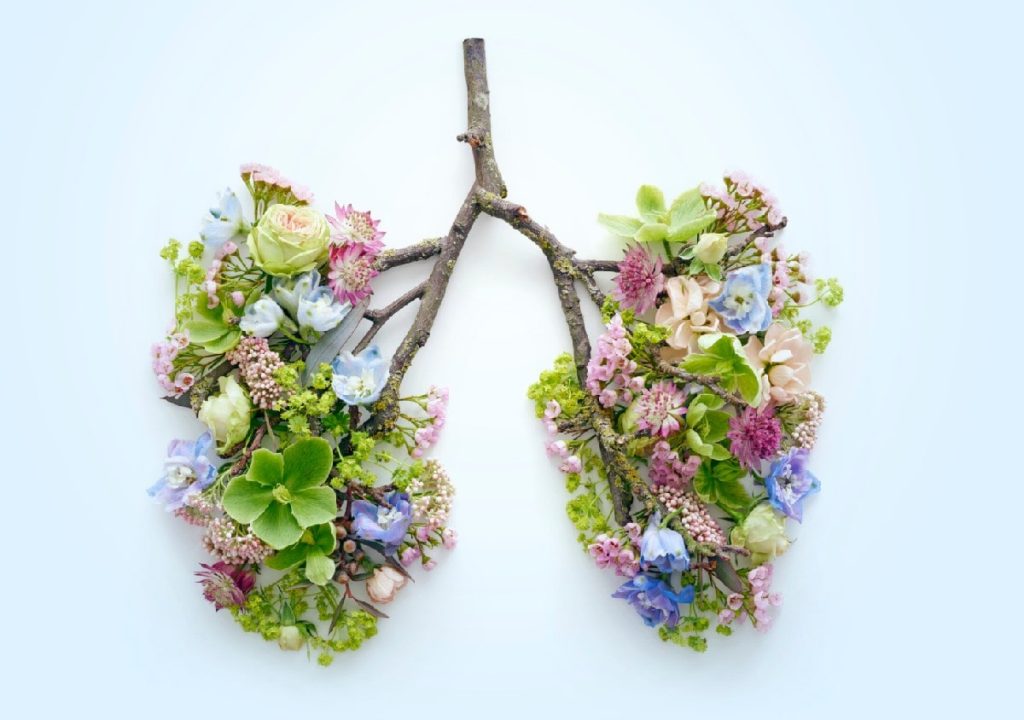
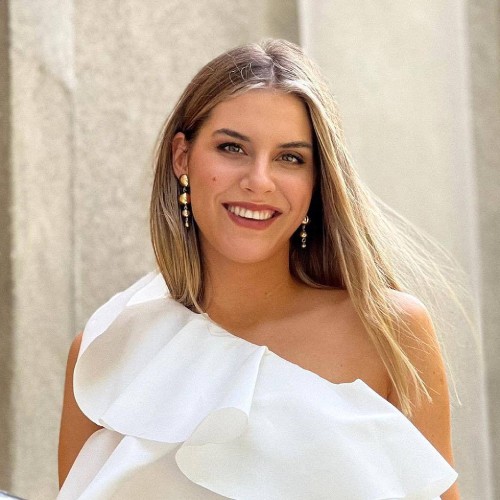
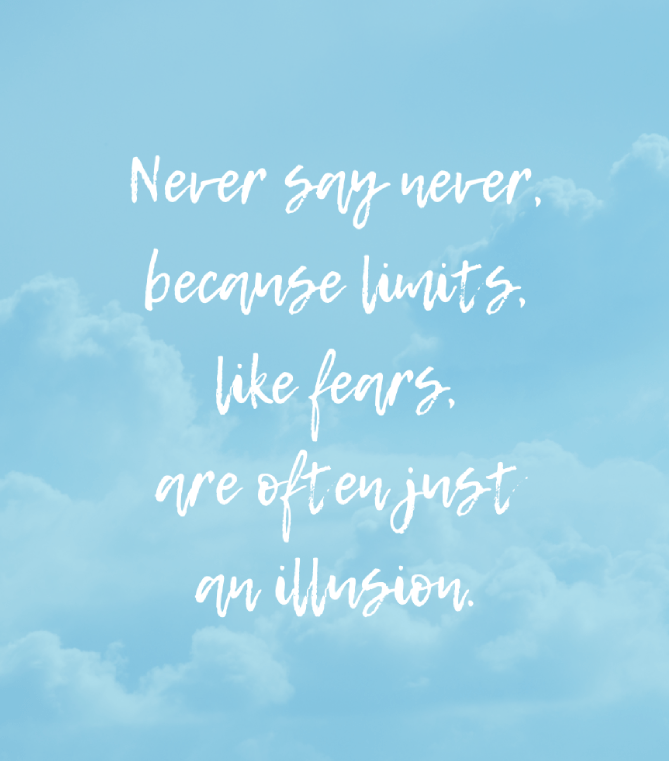
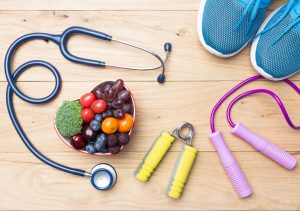

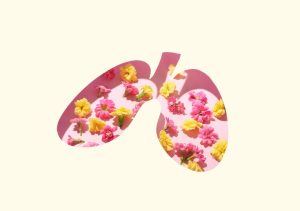
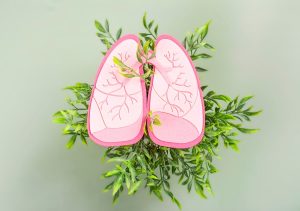
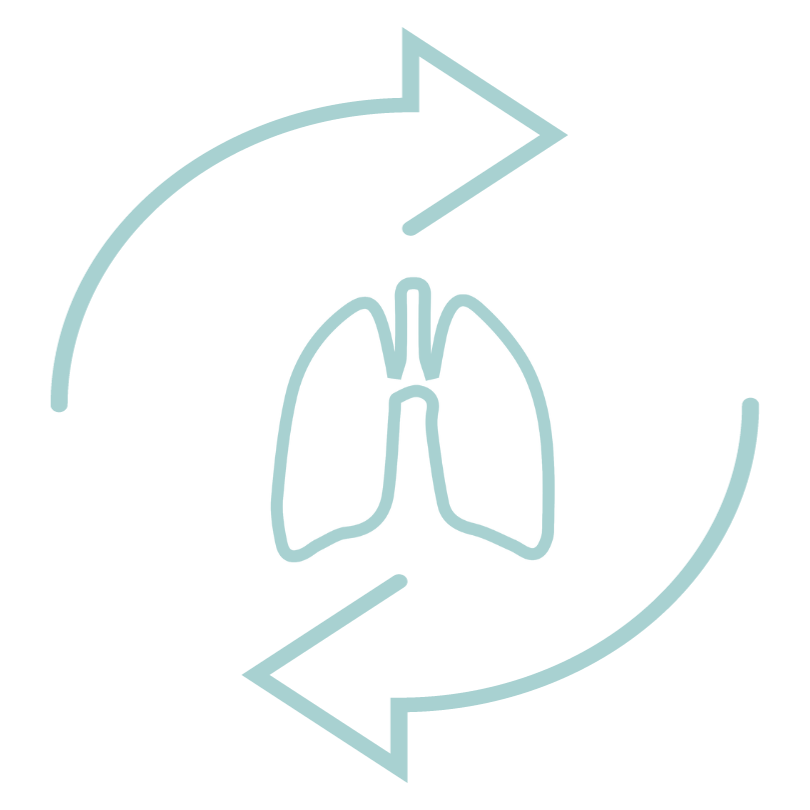
One Response
Good